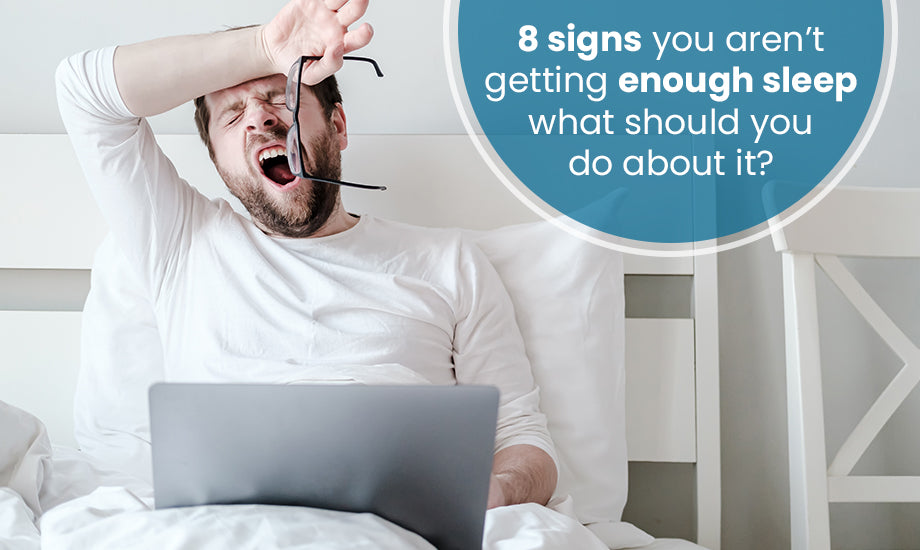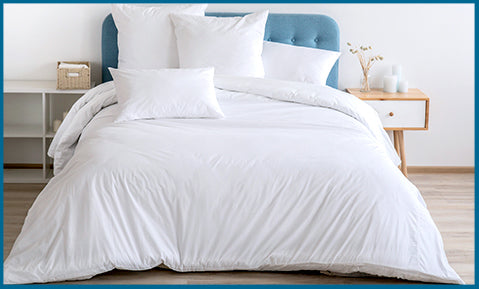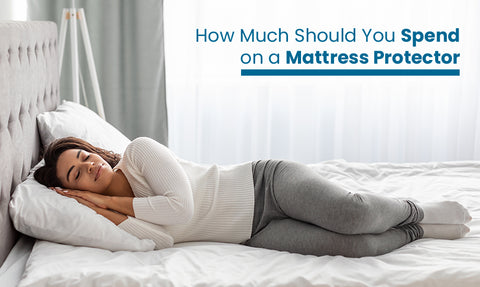
In this busy world, we often focus on bigger things and leave out the once which can be most vital for our sustainability. Often to pursue our careers and to become successful in our life. A flourishing career comes from hard work and between all this noise we often forget about to sleep. Gone are the days were people used to sleep at 8 pm and used to wake up at 5 am to complete their household and working chores. Sleep as we know is the enzyme of health and keeps us energized the whole day and prepare us for all that rough and tough schedule. But are we getting enough sleep to keep our body working at its full potential? Is your sleeping hours being reduced on a march of better opportunities?
Let’s dive into some of the aspects of healthy sleep routine and the signs you aren’t getting enough sleep.
Proper sleeping habits are associated with healthy life and higher life expectancy. As we know anything which is done more than required is harmful for us and so is it with our sleep. Sleeping too less and sleeping too much are both harmful for our body. Though it is difficult to ascertain the proper balance between sleeping and work. A normal 7 to 9 hour of sleep is must for keeping you in a healthy prospect. According to Chinese Longitudinal Healthy Longevity Survey, finding U-shaped associations of sleep duration with all-cause mortality, favoring the highest survival among individuals habitually sleeping 7 to 8 hours.
Scientist have revealed that young adults tend to have a periodic and systematic hours of sleep stages during night. It mostly begins a period of deep sleep (shown as NREM-3 and NREM-4), which is continued by an increase in REM sleep (when we’re most likely to dream) during the latter half of the night.
As we get old, this pattern of sleep gets disrupted, and the overall sleep becomes mostly fragmented. The amount of sleep time is reduced, and the amount of time we stay awake throughout the night increases.
Sleep makes about one third of our total lifetime and as such sleep has a essence of several physiological functions including:
- Immunity
- Thermoregulation
- Metabolic functioning
- Cognition
- Endocrine (hormonal) functioning
- Waste clearance in the brain
It has been revealed that sufficient, quality and consistent sleep is probably the key to increase in global life expectancy. Research shows that those individuals able to successfully reach very old age like the once that live to 100, had an experience of optimal sleep across the lifespan. Whereas poor sleep may increase the aging process; sleeplessness affects nearly all the physiological function in our body.
Professor Matthew Walker notes in his book – Why Can’t We sleep, that the shorter we sleep, the shorter our life span would be. Backed by other stats where the Center for Disease Control and Prevention, says that 30% of adults are unable to get adequate regular sleep.
What are the signs you aren’t getting enough Sleep?
Memory loss and lack of focus

Adult with low sleeping hours shows a sign of memory loss and lack of concentration towards their work. Poor sleep could affect the brain in many ways. A research conducted on mice has shown that sleep-deprived mice develop excess deposits of beta amyloid in the brain in comparison to the mice allowed to sleep normally. Similarly in humans, this beta amyloid deposits in the brain are linked to loss of memory and thinking and is the cause of dementia. People who are continuously sleep deprived have more chances to develop high blood pressure, narrowed blood vessels and diabetes. Each of these decreases the blood flow inside the brain. Brain cells thrive on lot of oxygen and sugar and a blood flow problems could gradually affect their ability to work.
Acne and weak immune system
Studies shows that sleep controls hormones in your body and lack of sleep can be seen on our face. Your skin will look glowy and fresh if you get adequate sleep every night. If you’re looking to improve your health and appearance of your skin, try to add a few more hours of sleep into your routine. Sleep ensures the production of cytokines, which help the immune system against infections and the ones that affect the skin. Stress is also a factor in the development of acne. A body in stress produces cortisol and inflammatory proteins. Lack of sleep raises the cortisol levels significantly. Cortisol increase can impact your immune system’s defensive power negatively, which leads to an increased skin problems and diseases. Not only skin, less sleep also causes increase risk of many physical and mental health problems.
Weight Gain
Excessive weight gain is another problem associated with sleep deprivation. Proper sleep results in controlled release of ghrelin and leptin (the hormones that affect how hungry you feel). Sleep deprivation has also contributed to higher risks of weight gain and obesity in past few years. People having BMI (Body Mass Index) over 30 (the obesity range) had minutely shorter sleep durations and was more variability in their sleep. Extra weight can lead to health issues such as high blood pressure, coronary artery disease and type 2 diabetes.

Eyes are affected
Our eyes speaks a lot about our health, a sleepless night would result in dry, itchy, or bloodshot eyes. Not getting proper sleep would also affect your eyesight. Individuals with sleep issues are at a potential risk to develop ischemic optic neuropathy (ION), which causes permanent vision loss. Because the body uses sleep time to repair damaged cells and regulate hormone levels, people might experience lower tear production which leads to irritation and feels like stinging, grittiness and/or burning.
Junk food syndrome
As we know, eating excessive junk food cause long term health issues. After a sleepless night, you would be much eager to crave for a short tasty option rather than eating healthy food. Junk food impacts blood sugar and blood pressure, increases inflammation, and also assure that individual does not eat enough necessary nutrients. It results in obesity and other related health issues. Lack of sleep causes tiredness which results in increase release of Cortisol, the stress hormone, stimulating your appetite. Research shows that sleep deprivation causes an increase in overall hunger, which can lead to an urge of sugar, fat or both.
Increase consumption of Caffeine
When you feel tiresome, one prefers a cup of soda to energize oneself. Invariably, an increased routine of caffeine causes might cause health problems, such as symptoms of Restlessness and shakiness. The U.S. Food and Drug Administration have cautioned that just one teaspoon of powdered caffeine is equivalent to about 28 cups of coffee. Such increased levels of caffeine can cause severe health problems.
Mood swings and Depression
Increased mood swing is one of the signs, you are not getting proper sleep. Sleep and mood are relatively connected. Lack of sleep can cause irritability. Studies show people who are sleep deprived shows increase in negative moods (anger, irritability, frustration sadness) and decreases in positive moods. And sleep deprivation is often a symptom of mood disorders, such as depression and anxiety. It can also raise the risk of and even contribute to, developing several mood disorders.

Bad Wakeups
When you stay awake late night and wake up with sore throat, dry mouth, or headache, which means you are not getting proper sleep. Morning health disorders such as sleep apnea, acid reflux or snoring are the common signs of your sleeplessness. Continued habit of sleep deprivation result in serious health stigmas and has a huge impact on your body on a long run.
While it is difficult to ascertain the proper sleeping hours for every individual getting 7 to 9 hours of sleep is medically recommended for a healthy lifestyle.
How to get a good sleep
Proper sleep helps you keep energized and adds to several health benefits. Including some smart habits which is normally referred to ‘shut-down time:-
- Turning off all screen devices including smartphones and computer, at least an hour before bed
- Refraining from having tea or coffee or any caffeine drink in evening
- Exercising in the morning rather than just before going to bed will help you get a good sleep
- Using the right pillows












